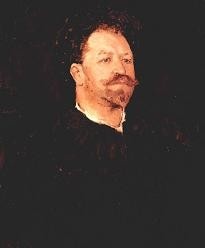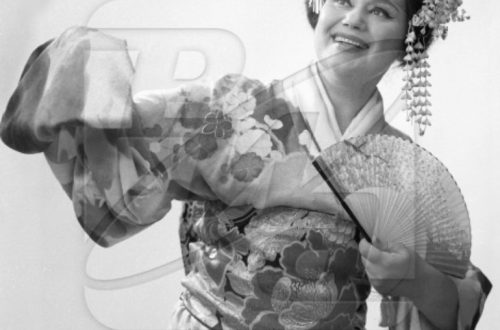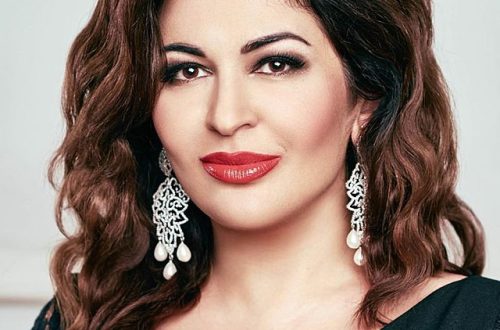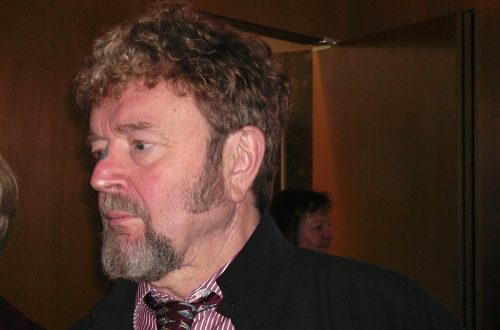
Francesco Tamagno |
Francesco Tamagno

The wonderful storyteller Irakli Andronnikov was lucky to have interlocutors. Once his neighbor in the hospital room was an outstanding Russian actor Alexander Ostuzhev. They spent long days in conversation. Somehow we were talking about the role of Othello – one of the best in the artist’s career. And then Ostuzhev told an attentive interlocutor a curious story.
At the end of the 19th century, the famous Italian singer Francesco Tamagno toured Moscow, who amazed everyone with his performance of the role of Otello in the Verdi opera of the same name. The penetrating power of the singer’s voice was such that he could be heard on the street, and students who did not have money for a ticket came in a crowd to the theater to listen to the great master. It was said that before the performance, Tamagno laced up his chest with a special corset so as not to breathe deeply. As for his game, he performed the final scene with such skill that the audience jumped up from their seats at the moment when the singer “pierced” his chest with a dagger. He passed this role before the premiere (Tamagno was a participant in the world premiere) with the composer himself. Eyewitnesses have preserved the memories of how Verdi skillfully showed the singer how to stab. Tamagno’s singing has left an indelible mark on many Russian opera lovers and artists.
K.S. Stanislavsky, who attended the Mamontov Opera, where the singer performed in 1891, has memories of an unforgettable impression of his singing: “Before his first performance in Moscow, he was not sufficiently advertised. They were waiting for a good singer – no more. Tamagno came out in the costume of Othello, with his huge figure of mighty build, and immediately deafened with an all-destroying note. The crowd instinctively, like one person, leaned back, as if defending themselves from shell shock. The second note – even stronger, the third, fourth – more and more – and when, like fire from a crater, the last note flew out at the word “Muslim-a-a-nee”, the audience lost consciousness for several minutes. We all jumped up. Friends were looking for each other. Strangers turned to strangers with the same question: “Did you hear? What it is?”. The orchestra stopped. Confusion on stage. But suddenly, coming to their senses, the crowd rushed to the stage and roared with delight, demanding an encore. Fedor Ivanovich Chaliapin also had the highest opinion of the singer. Here is how he tells in his memoirs “Pages from My Life” about his visit to the La Scala Theater in the spring of 1901 (where the great bass himself triumphantly sang in Boito’s “Mephistopheles”) in order to listen to the outstanding singer: “Finally, Tamagno appeared. The author [the now forgotten composer I. Lara in whose opera Messalina the singer performed – ed.] prepared for him a spectacular output phrase. She caused a unanimous explosion of delight from the public. Tamagno is an exceptional, I would say, age-old voice. Tall, slender, he is as handsome an artist as he is an exceptional singer.”
The famous Felia Litvin also admired the art of the outstanding Italian, which is eloquently evidenced in her book “My Life and My Art”: “I also heard “William Tell” with F. Tamagno in the role of Arnold. It is impossible to describe the beauty of his voice, his natural strength. The trio and the aria “O Matilda” delighted me. As a tragic actor, Tamagno had no equal.”
The great Russian artist Valentin Serov, who appreciated the singer since his stay in Italy, where he happened to listen to him, and often met with him at the Mamontov estate, painted his portrait, which became one of the best in the painter’s work (1891, signed in 1893). Serov managed to find a striking characteristic gesture (deliberately proudly upturned head), which perfectly reflects the artistic essence of the Italian.
These memories can go on. The singer repeatedly visited Russia (not only in Moscow, but also in St. Petersburg in 1895-96). It is all the more interesting now, on the days of the singer’s 150th anniversary, to recall his creative path.
He was born in Turin on December 28, 1850 and was one of 15 children in the family of an innkeeper. In his youth, he worked as an apprentice baker, then as a locksmith. He began to study singing in Turin with C. Pedrotti, bandmaster of the Regio Theater. Then he began to perform in the choir of this theater. After serving in the army, he continued his studies in Milan. The debut of the singer took place in 1869 in Palermo in Donizetti’s opera “Polyeuctus” (part of Nearco, the leader of the Armenian Christians). He continued to perform in small roles until 1874, until, finally, in the same Palermo theater “Massimo” success came to him in the role of Richard (Riccardo) in Verdi’s opera “Un ballo in maschera”. From that moment began the rapid ascent of the young singer to fame. In 1877 he made his debut at La Scala (Vasco da Gama in Meyerbeer’s Le Africane), in 1880 he sang there in the world premiere of Ponchielli’s opera The Prodigal Son, in 1881 he performed the role of Gabriel Adorno in the premiere of a new version of Verdi’s opera Simon Boccanegra, in 1884 he participated in the premiere of the 2nd (Italian) edition of Don Carlos (the title part).
In 1889, the singer performed for the first time in London. In the same year he sang the part of Arnold in “William Tell” (one of the best in his career) in Chicago (American debut). The highest achievement of Tamagno is the role of Othello in the world premiere of the opera (1887, La Scala). Much has been written about this premiere, including the course of its preparation, as well as the triumph, which, along with the composer and librettist (A.Boito), was deservedly shared by Tamagno (Othello), Victor Morel (Iago) and Romilda Pantaleoni (Desdemona). After the performance, the crowd surrounded the house where the composer was staying. Verdi went out onto the balcony surrounded by friends. There was an exclamation of Tamagno “Esultate!”. The crowd responded with a thousand voices.
The role of Othello performed by Tamagno has become legendary in the history of opera. The singer was applauded by Russia, America (1890, debut at the Metropolitan Theatre), England (1895, debut at Covent Garden), Germany (Berlin, Dresden, Munich, Cologne), Vienna, Prague, not to mention Italian theaters .
Among other parties successfully performed by the singer are Ernani in Verdi’s opera of the same name, Edgar (Donizetti’s Lucia di Lammermoor), Enzo (La Gioconda by Ponchielli), Raul (Meyerbeer’s Huguenots). John of Leiden (“The Prophet” by Meyerbeer), Samson (“Samson and Delilah” by Saint-Saens). At the end of his singing career, he also performed in veristic parts. In 1903, a number of fragments and arias from operas performed by Tamagno were recorded on records. In 1904 the singer left the stage. In recent years, he participated in the political life of his native Turin, ran for city elections (1904). Tamagno died on August 31, 1905 in Varese.
Tamagno possessed the brightest talent of a dramatic tenor, with a powerful sound and dense sound in all registers. To some extent, this became (along with advantages) a certain disadvantage. So Verdi, looking for a suitable candidate for the role of Othello, wrote: “In many respects, Tamagno would be very suitable, but in many, many others he is not suitable. There are wide and extended legated phrases that should be served on mezza voche, which is absolutely inaccessible to him … This worries me very much. Quoting in his book “Vocal Parallels” this phrase from Verdi’s letter to the publisher Giulio Ricordi, the famous singer G. Lauri-Volpi further states: “Tamagno used, in order to enhance the sonority of his voice, the nasal sinuses, filling them with air by lowering the palatine curtain and used diaphragmatic-abdominal breathing. Inevitably, emphysema of the lungs was to come and set in, which forced him to leave the stage at the golden time and soon brought him to the grave.
Of course, this is the opinion of a colleague in the singing workshop, and they are known to be as insightful as they are biased towards their colleagues. It is impossible to take away from the great Italian neither the beauty of sound, nor the brilliant mastery of breathing and impeccable diction, nor temperament.
His art has forever entered the treasury of the classical opera heritage.
E. Tsodokov





